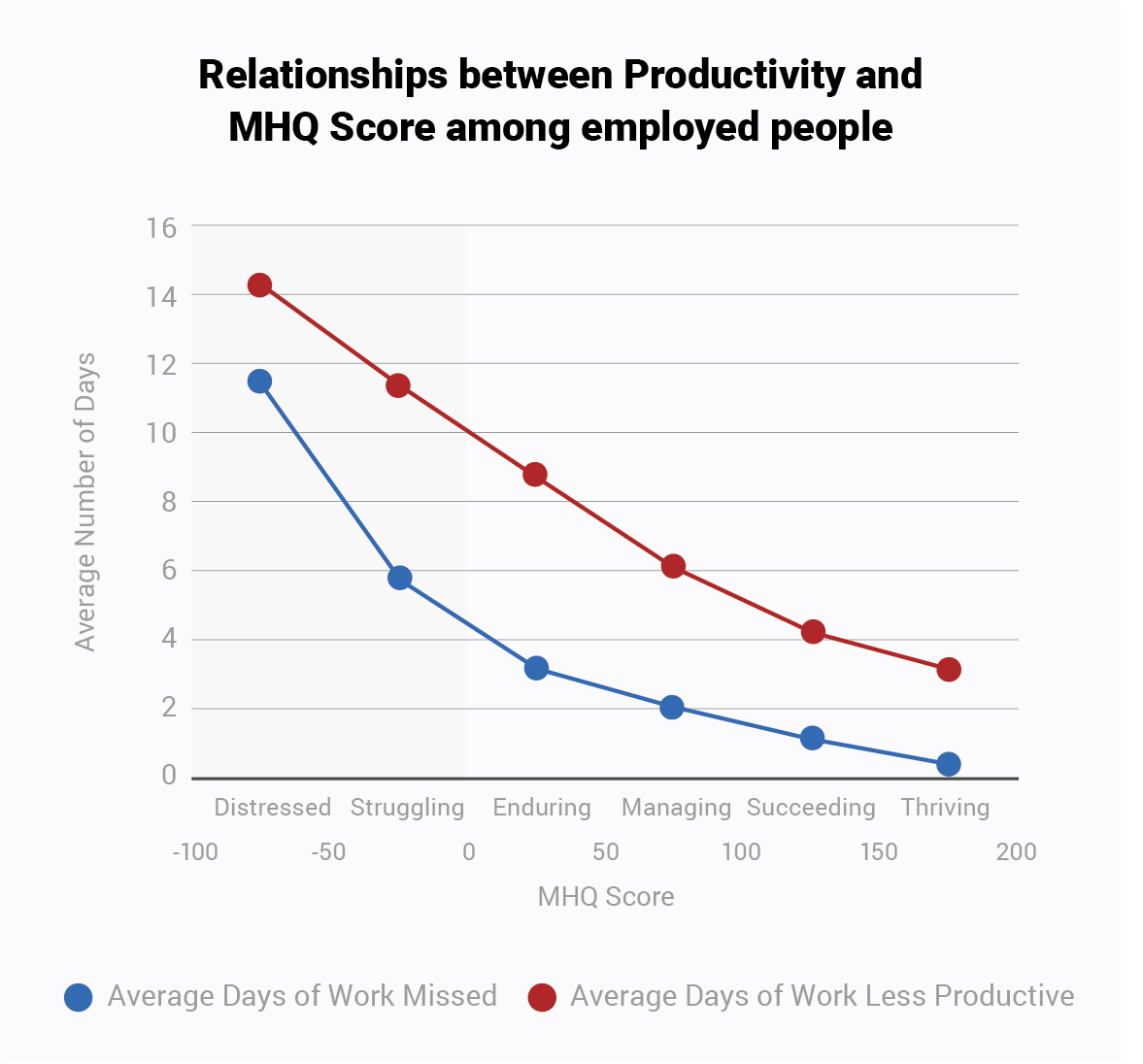Our mental health doesn’t exist in a vacuum. Anyone who has snapped at an unsuspecting family member while really being stressed about a work issue or felt so anxious about a problem that they were paralyzed into inaction knows this all too well.
Mental wellbeing has a direct impact on how well we operate in the world, and we must therefore take steps to manage it. The challenge, however, is that mental wellbeing is a reflection of how we ‘feel’, which means that its subjective.
Additionally, each person has their own understanding of what optimal functioning looks like. Mental wellbeing reflects a person’s sense of how their inner state impacts their ability to function within their life context, rather than as an absolute of human mental function.
To solve this challenge, Sapien Labs designed the MHQ as a functional measurement tool; it assesses how well-equipped we feel to handle both life’s adversities and opportunities. The MHQ looks at 5 different aspects that together make up our mental wellbeing.
Mood & Outlook: The ability to manage and regulate your emotions effectively and to have a constructive or optimistic outlook for the future
Our mood and outlook determines how well we manage our emotions and handle setbacks, which in turn can affect our overall wellbeing. Here are some ways that you can help improve your mood and outlook.
Social Self: How you interact with, relate to, and see yourself with respect to others
Social connection is critical for our health and wellbeing. In a blog post from last spring, we shared data from the Mental Health Million project which showed that people who report frequent face-to-face socializing having strikingly higher mental wellbeing scores compared to those who rarely do so. A strong Social Self means you have strong sense of self-worth and are able to form new relationships, resolve conflict in relationships, and generally build strong relationships with others.
Drive & Motivation: The ability to work towards achieving your desired goals and to initiate, persevere and complete activities in your daily life
Having a healthy drive and motivation means you are able to initiate and persevere with difficult tasks and activities through to completion. You feel equipped to overcome challenges and distractions that get in the way of your goals. You are also able to be curious, interested, excited, and enthusiastic about the world around you.
Adaptability & Resilience: The ability to respond to new circumstances and set-backs in productive and positive ways
The circumstances of life are always changing and our ability to handle these changes is crucial for how we function in the world. Having strong adaptability and resilience means that we are able to find solutions to challenges that arise, turn disappointment into productive action and let go of negative emotions in the process.
Cognition: Your ability to perform basic cognitive functions, make sense of complex sets of events and situations and display a longer-term perspective in your thoughts and behavior
Cognition affects critical functioning such as memory and attention, as well as more complex tasks like decision-making, planning, and creativity.
Mind-Body Connection: The relationship between your mind and physical body
Many of us think of the mind and body as two separate things. However, a healthy mind makes your body work better, and a healthy body improves your mental wellbeing. Exercise and diet are crucial for the efficient delivery of nutrients and oxygen to your brain, while sleep helps clear the waste and sort out and commit to memory what you have learned during the day. Thus sufficient sleep, exercise and a healthy diet are essential for the brain and mind to stay positive and healthy and the body to be pain free.
Why does this matter for employers? Mental wellbeing is integral to our functioning in the world, and it therefore has a direct impact on our work productivity. In a recent report, data from the MHQ showed that, 45% of unemployed adults are distressed or struggling with their mental health, compared to only 23% of those who are employed. And among the employed, those who were distressed with their mental wellbeing lost an estimated 12-17 days of productivity per month, while those who were thriving saw an impact to productivity of just 1.27 days per month.

Measurement is an important first step to tackling the employee mental health challenge. WorkforceMHQ can help you get a data-driven understanding of employee mental health. Click here to set up time to discuss further.

